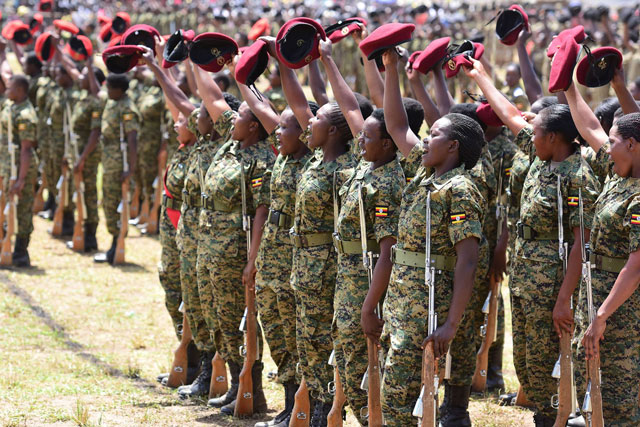
Activist speaks out on the state of a Ugandan woman and why they won’t be silenced
SPECIAL PROJECT: Uganda Women Network (UWONET); transforming women lives
*****
Kampala, Uganda | FLAVIA NASSAKA | March is regarded a women’s month across the world because it’s when the famous International Women’s day falls. This year, the theme for the Mar.08 events rotated around what activists are doing to transform lives of women living under different settings. Ritah Aciro is one of the top players of women rights activism in the country. She has touched many lives through an organization – Uganda Women Network (UWONET) where she is Executive Director. She spoke to the Independent’s Flavia Nassaka about their work and the challenges of a woman in Uganda
International Women’s Day is being marked under the theme; ‘Time is now: Rural and urban activists transforming women’s lives’. How does this play out for Uganda? How do you rate the state of a women activist in Uganda?
I don’t know whether time is now. Time was yesterday or the other day. We shouldn’t pretend that the challenges facing women and girls in this country have just come to our attention now. It’s unfortunate that they are escalating and manifesting themselves in different ways and it’s unfortunate that we are making reversals on the gains previously made.
I don’t know why they chose the theme to focus on activists because as far as I know everyone is an activist wherever they are. Each of us has a responsibility for protecting women’s rights and therefore time is now for those who have been keeping quiet and trivializing these issues to wake up and put their foot forward. At least from the vantage point that I stand from the women’s rights organizations this has been our agenda, to advance and promote women’s rights.
What should we know about women’s day?
Some of us have been reflecting and having challenges of what it means to commemorate International Women’s day. Is it about having celebrations or is it about having serious reflections on how far we have come from and how much farther we need to go and what strategic steps do we need to take to advance this? We need to check ourselves on whether we are making advancements or its just lip service. While we are holding these national and district celebrations, we should also be listening to women’s challenges so that resources are directed in those areas. Women challenges are the same irrespective of social status; the only difference is the magnitude and access to information. The situation is worse for the rural women because they are not educated and the type of jobs that they do don’t give them the leverage to participate in the public sphere as most of them depend on land for a livelihood and basically participate in the domestic sphere.
Feminism is one field that has been interpreted in different ways. Who is a feminist to you and what do you think is misunderstood about them?
People misunderstand feminists to be women who are aggressive towards men, those who disobey culture and are odd in society but that’s not it. Feminism means believing that women have equal opportunities as men and is about denouncing discriminatory practices that dehumanize women.
Women’s day comes at a time when a woman was murdered weeks back and many other unexplained women murders happened last year. What does this mean for women in this country?
We are making serious reversals. Uganda had in the 1980s and 90s championed women rights in terms of giving them space and priority that’s when things like affirmative action came to be talked about, more women joined University, more women went to parliament and more women were economically empowered but when we now see women being murdered in cold blood and no accountability is made to the citizenry on what happened, that rises serious challenges to women and the country. It’s an indicator of a bigger security problem and the government should be finding ways of winning back trust of the citizens that they are safe in their country.
What do you make of women rights laws and what do you think is the challenge implementing them?
Uganda has almost all the basic laws and policies that you can think of when it comes to promoting gender equality and women’s rights. The challenge has been enforcement which ties down to the capacity of institutions supposed to implement them. We have seen files missing from police stations; we have seen lack of fuel to visit crime scenes and the knowledge by officials to implement them is also lacking. The people who are supposed to protect these laws and ensure that they are implemented are still held up in culture and patriarchy.
 The Independent Uganda: You get the Truth we Pay the Price
The Independent Uganda: You get the Truth we Pay the Price





